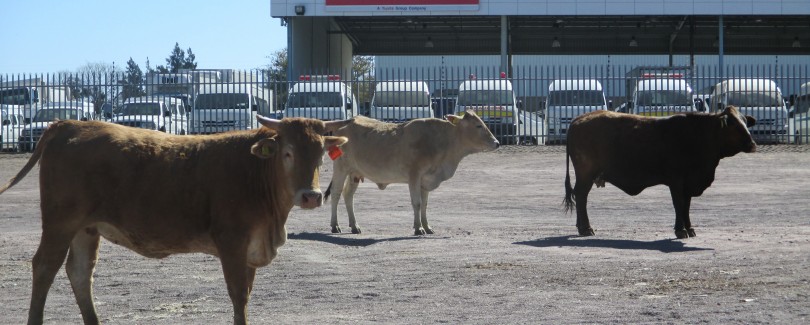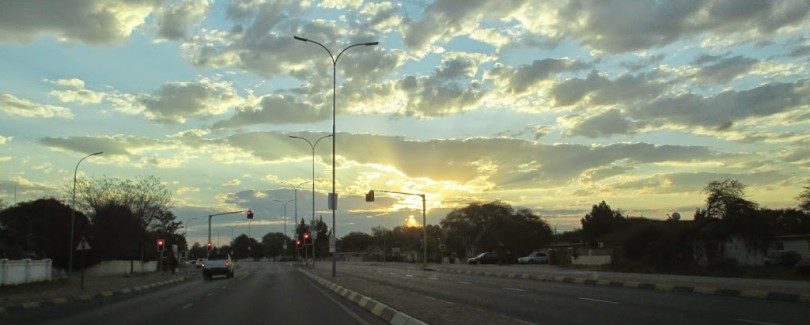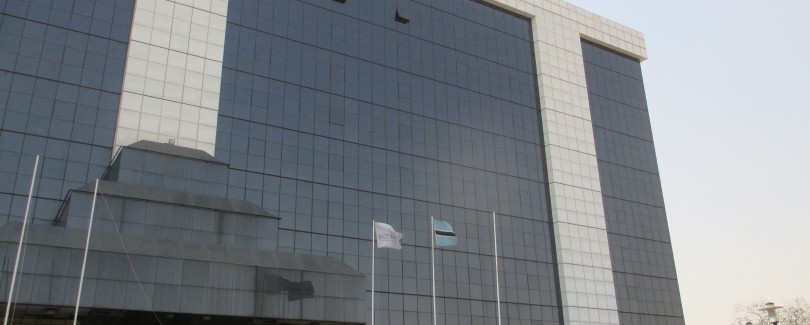It is spring in Gaborone, so the animals are out on the streets. During the winter, you could be fooled into thinking you were in a normal suburban town or small city in the United States: clear wide roads, shiny office buildings, commuters in Toyotas and Nissans making their way through red lights to work. But the blossoms and new green growth of spring have brought the animals out of the woodwork. Driving to lunch you’ll need to slow down while a herd of cows lumbers across the highway in front of you. On the way to the gym you’ll have to pick you way through a dozen lazy goats sleeping in the grass. And little armies of chickens strut without fear in front of your car as you make your way home. Inevitably I am thinking about what’s on the dinner menu for the evening when I pass them.
Prostitutes & Potholes
The most African thing about my life every day is my commute home from work. Because of a large concrete road divider on the main road to my house (see photo above), you can’t turn directly from the street to get to my place. Instead, you have to turn off the road 1/2 mile earlier, wend your way through rutted back roads full of children and chickens, and make about three unmarked left turns and four right ones to finally get to my driveway. I realize this makes no sense in print and I really need to draw a diagram. But this forced detour from the slick highway and exposure to a real middle-income African neighborhood reminds me that I’m not living in Phoenix or a downmarket Californian suburb, which is what most of the small capital city of Gaborone looks like. Long ago the town made a conscious choice to implement “mixed housing” in Gaborone rather than class-segregated neighborhoods, so the nicer, bigger houses (of which mine is one, even though the rent is only a $1,800 a month) are just one street over from modest shacks and a few hovels. Gated houses with electric fences are a stone’s throw from dusty compounds with four or five tiny houses on one plot.
Work Permits & Waiting
In order to work in a foreign country, you generally need the permission of their government. This makes perfect sense but is one of those things you don’t think about until you find yourself in this particular situation. Botswana is a sparsely populated country (at barely over 2 million people), and it is fiercely protective of its own citizens, which translates into being a bit stingy when it comes to handing out work permits for expats. You have to demonstrate clearly that you possess a “special, valuable skill” that is not already readily available in the country, and that your job has already been advertised widely to give citizens a chance to nab it first. No work permit = no job, so the stakes are high, especially when you’ve already moved your whole family to Botswana at great personal expense and exhaustion of energy and you literally have no home to go to if they kick you out.



